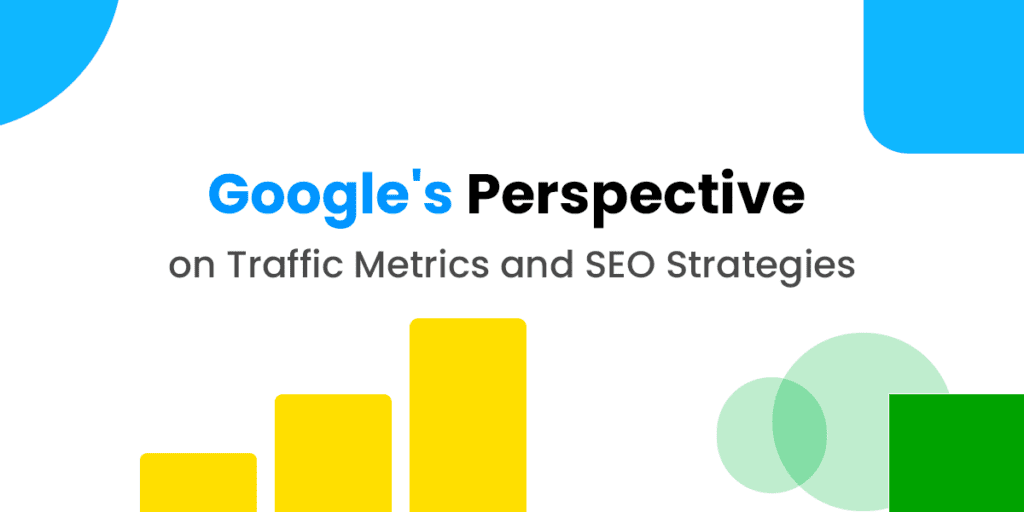The Impact: Google’s Traffic Metrics and Their Crucial Role in SEO Success

Google’s Perspective on Traffic Metrics and SEO Strategies
In a recent episode of Google’s Search Off the Record podcast, the focus was on key aspects of SEO. The discussion included a compelling segment encouraging SEOs to reconsider their perspective on traffic and explore potentially more significant goals
What is SEO traffic?
SEO traffic serves as a measure of the number of visitors to your website and the channels through which they arrived. It provides insights into the distinction between organic and paid search, where organic traffic comprises visitors reaching your site through Google search results, social media, email campaigns, podcasts, and more. On the other hand, paid traffic, often associated with pay-per-click (PPC), involves visitors clicking on ads to access your webpage.
Interpreting raw SEO traffic numbers can be challenging, but the real value lies in analyzing these metrics against your overarching goals and company strategy. Various factors, such as backlinks, keyword research, internal links, meta descriptions (brief snippets describing the site), and more, significantly impact a website’s ranking and, consequently, its organic traffic performance. Typically, web pages on the first page of Google search results enjoy better organic search traffic compared to those listed further down.
It’s crucial to note that while Google dominates the search engine landscape, with a near-total market share, other search engines like Bing and Yahoo also play a role. Understanding and optimizing for Google’s algorithms remain paramount in enhancing a website’s visibility and overall performance in the digital landscape.
Measuring Success: The Pitfalls of Relying on Traffic Metrics
One common but misguided practice among search marketers is evaluating their success solely based on traffic statistics. Across social media platforms and blogs, you’ll come across posts and articles where search marketers boast about how their strategies led to a significant surge in traffic for their clients.
This reliance on traffic as a metric of success is not limited to link builders; content writers and SEOs also fall into this trap. The critical question that arises is, what impact did this spike in traffic have on sales or ad clicks? If the revenue remains stagnant, it raises doubts about the significance of the increased traffic and the effectiveness of the SEO efforts that contributed to it.
When you consult Pay Per Click experts or affiliate marketers and inquire about the importance of conversions compared to traffic, the answer is unequivocal: conversions take precedence over traffic. In the realm of online marketing, it’s crucial to shift the focus from sheer traffic numbers to tangible outcomes such as conversions and sales